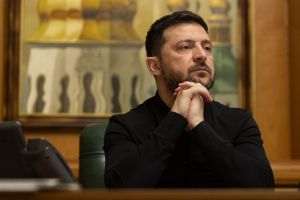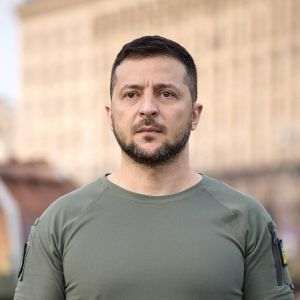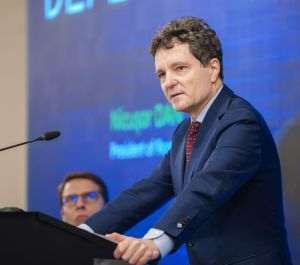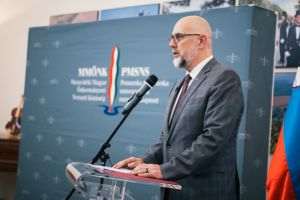The National Authority for the Regulation of the Energy Market (ANRE) has asked for the reconsideration of gas storage policies in Romania to be made a priority, Emil Calotă, the vice-president of the ANRE recently said, in the debates in the Industry Commission of the Romania Parliament about the Draft Law concerning the approval of the Government Emergency Ordinance no.64/2016 for the amendment and completion of the Law of Electricity and of natural gas no. 123/ 2012.
State secretary Robert Tudorache of the Ministry of Energy also said that it is absolutely necessary for the natural gas storage policy to be reconsidered.
Emil Calotă told deputies the following: "Without doing so we won't be able to apply EU Regulation 994 concerning the measures to guarantee the security of the natural gas supply in Romania, and that will also endanger the modernization and liberalization of the gas market. That document, approved in 2010, was supposed to come into effect in Romania back in 2012. The implementation was done through the order no. 7 of the Ministry of Energy which establishes the Ministry of Energy as the competent authority in charge of the security of the gas supply and implicitly sets clear obligations for the system and transport operator (Transgaz), but incomplete compared to the ones stipulated in the Regulation.
One of them concerns the responsibility of Transgaz to ensure the gas quantities needed to balance the national transport system (SNT).
A new proposal from the Ministry of Energy - which the ANRE supports - is for the storage policy to be reconsidered, meaning that a strategic stock will be created, as stipulated by Regulation 994, which ensures the security of the gas supply and the balanced functioning of the SNT, under winter circumstances, and the suppliers would be required to store the difference in order to honor their contracts, based on commercial negotiation. It is an extremely important step because, if this addition to the law isn't made, we won't be able to meet our obligation to apply Regulation 994 and every year in winter we have problems with the volumes that are intended to ensure the safety of supply and on the other hand, we can't eliminate the factor that is removing from the competition Romanian gas stored during the winter. If we do not take steps, the natural gas stored by Romanian producers will remain unused because there will be far cheaper imported gas available".
• Iulian Iancu: "There is a risk that, in the event of a gas shortage, instead of saving our neighbor, we would just be committing group suicide"
Iulian Iancu, the president of the Industries Commission said last week, that EU Regulation 994 is an extremely important document, which directly concerns the handling of the natural gas supply, in situations of emergency or crisis. That document also has a new version, in which the regional cooperation is still being debated.
Iulian Iancu continued: "In Regulation 994 it is intended that in the event of a crisis situation in the national transport system of any of the EU systems, the neighboring countries would help a member which is in trouble with the gas volumes it needs for the operation of the system within optimal functioning parameters. Let's imagine the following situation: it's -25 degrees below zero outside, for about 10 days, and the Hungarian or Bulgarian system encounters a very serious problem. According to the Regulation, the neighboring country is expected to automatically offer the necessary quantities of natural gas, based on the solidarity criteria, by taking them from its own industrial consumers. Thus, there is the risk that in a crisis situation, instead of saving the neighboring country, we would just be commiting group suicide. The industry in question does business based on term-contracts, it is expected to deliver the products. We just can't have such a commitment in the name of solidarity.
We can make such a commitment as well, but only subject to certain conditions. We should ask the neighboring countries to join us with investments, including out of European funds, to develop the Romanian storage capacity, because, for better or for worse, we have sufficient capacity, we can actually double the existing one. When the crisis moment comes, we have to offer the troubled neighbor stored natural gas rather than taking it away from the industry. A provision like that absolutely needs to be included in the Regulation in question, because I can't just give another country the natural gas that is meant for my industry.
The regulation is mandatory and we can't do anything because we have to implement it and comply with it. But when the temperatures drop, we could be in danger, instead of saving ourselves. That is why, when somebody goes in for negotiations (usually a representative of the Ministry) - where all the countries are present and all the interests are gathered and of course, the most vocal and influential produce the provisions that they want - we shouldn't stand out through our silence and end up having this kind of regulation pushed on us that would place us at great risk".
In the debates, he asked state secretary Robert Tudorache if the Ministry of Energy had expressed an opinion in writing when it comes to the Regulation, who supported it in Brussels, what mandate the Ministry got from the Romanian Government and what is the final form of the document concerning the solidarity between countries in situations of emergency or crisis in the natural gas transport system.
Tudorache admitted to the deputies of the Industries Commission that aside for Order 7 of 2016, no more updates have been made to the document and that the regulation is still being worked on.
As a result, Iulian Iancu asked the state secretary to ensure that the person going in for the negotiations concerning that Regulation have the mandate of the Ministry of Energy and even of the Government.
























































